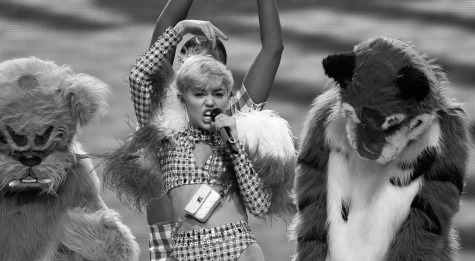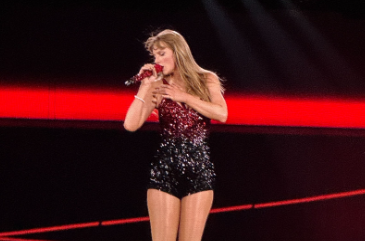Celebrities fight to erase indifference
Every year, the MTV Video Music Awards leaves some sort of mark on the public memory because of an outrageous display. In 2001, Britney Spears featured an Albino Burmese python in her performance. In 2009, Kanye West hijacked Taylor Swift’s acceptance speech. This year lacked one specific event that will go down in history, but there was one unlikely, recurring theme: activism.
Bombarding otherwise apathetic young people with these messages would seem futile, but organizations and celebrities have taken a new approach. An anti-smoking organization called “The Truth” aired creative, eye-catching ads featuring photos of prominent celebrities with cigarettes in hand calling them “unpaid tobacco spokespeople.” In addition to this, they called on teens to take action in the “revolution” against teen smoking (which has fallen from 23 to 9 percent since 2000) by changing their Facebook profile picture and sharing the #FinishIt ads via email or Twitter.
During the show itself, Miley Cyrus, instead of accepting her award for Video of the Year, sent her date, a homeless young man, to accept the trophy on her behalf. He gave a brief speech on the plight of homeless teens in Los Angeles and how Cyrus was enlisting her fans to help the cause. Most memorably, Beyoncé, during the performance of her song “Flawless”, made a very strong feminist declaration, garnering a lot of the attention on social media that night and the day after.
“I think the [homeless] adolescents topic was pretty interesting to see because I feel like not many people think of teens becoming homeless,” sophomore Sana Ahmed said.
These tactics raise the question of whether or not teens really pay attention to the issues brought to light, however.
“People were surprised by what she [Cyrus] did, and I think that it sent a positive message. But Beyoncé’s performance appealed more to the audience,” sophomore Lisa Ringwood said. “I also believe that people are more focused on feminism than the problem of being homeless because of social media. So in the end, I think that both messages were great, but Beyoncé’s performance made more of a statement.”
So teens may be listening, but does this new technique of making activism more glamorous make them genuinely care?
“It’s an interesting tactic that more organizations are looking into marketing toward teens or gaining their support, but there are definitely obstacles in the way,” said senior Eriko Spurlock, founder of the LB Students for Gender Equality, “one of the main ones being indifference.”
As shown by the wildly successful ALS Ice Bucket Challenge, there was varying interest in the actual cause; young people were often completing the challenge because they felt obligated. But despite the lack of awareness, the end likely justifies the means as organizations and celebrities are able to spread their causes and achieve their goals by making activism attractive to an otherwise apathetic audience.





